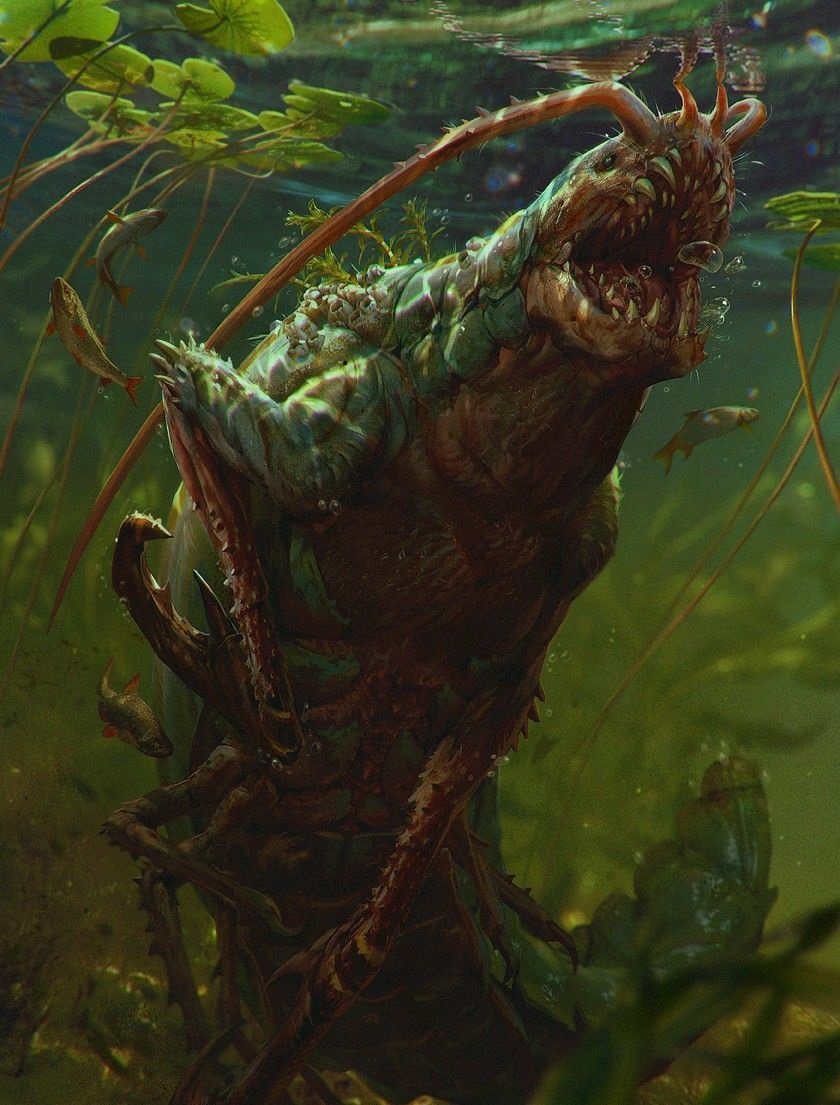Giant Crayfish
| Species | mollusk |
| No. Appearing | 1–4 |
| Behaviour | solitary |
| Range | profundal, wetland |
| Size | 8 ft. long |
| Weight | 1,300 lbs. |
| Intelligence | 0 |
| Armour Class | 4 |
| Hit Dice | 4+4 |
| Action Points | 4 |
| Max. Stride | {{{stride}}} |
| THAC0 | 18 |
| Hp/Die | d12 |
| Attack Forms | pincer/pincer |
| Damage | 2–12/2–12 |
| Special Attacks | capsizing, crushing, surprise on a 1-3 |
Giant crayfish are intimidating lake creatures found along the wetland and sodden areas adjacent to freshwater lakes and tropical nyanza. They may also be found in drowned swamps. They dwell submerged holes dug into the hard clay, preferring to feed and rest beneath the surface. When hunting, giant crayfish wander swampy areas just below the surface, causing a wake that doesn't quite break the water.
Behaviour
They're largely scavenging creatures, but if provoked they've been known to attack. Giant crayfish have been known to attack small surface boats, capsizing or swamping water over the gunnels, attacking occupants with one claw before sinking below the surface.
Locals are careful to avoid these creatures, though sometimes if one can be found upon semi-soft or firm ground, a large gathering of villagers may attack it for the meat — a giant crayfish offers up to 200 lbs. of food or more; the fresh meat may even be sold, if the market can be reached within half a day. Still, finding the creature close to a bank is a rare thing.
Advantages
When attacking out of the water, crayfish surprise 1-3 out of 6. From the water, they can attack with only one claw; but if their tail finds firm purchase on the bottom, it can attack with both. Crayfish always attack the same target when fighting with both claws.
If a claw attack succeeds in stunning, the claws will have seized it's victim, closing in a vise-like grip. This crushing causes 3-12 damage per round. To wrest the claws apart, the victim, or someone within reach, must have a strength of at least 18/30. To make matters worse, once the crayfish has grabbed a victim like this, it will sink back into the water as soon as it's able, drowning it's victim and storing the body in its hole until softened enough that it can be eaten.
See Bestiary
